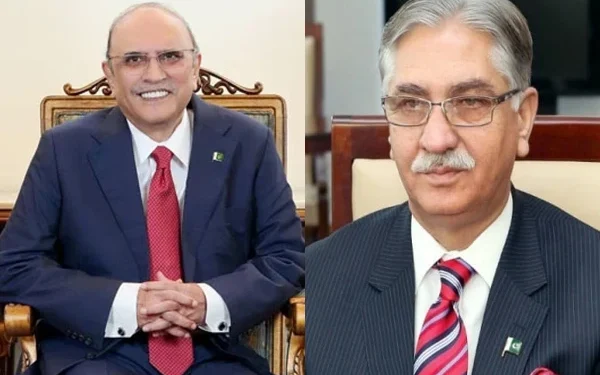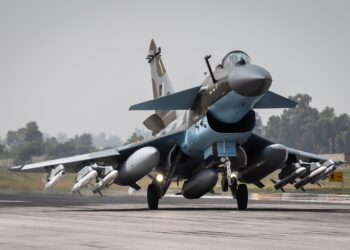Islamabad – Syed Nayyar Hussain Bukhari, the Secretary General of Pakistan Peoples Party Parliamentarians (PPP-P), has strongly rejected the recent wave of social media speculation targeting President Asif Ali Zardari. In an official statement issued to the media, Bukhari categorically dismissed these rumors as unfounded, asserting that they have no basis in reality or law.
The senior PPP leader made it clear that the party stands firmly behind its co-chairman and current President of Pakistan, emphasizing that attempts to malign Zardari are not only misleading but are also aimed at creating political instability in the country.
No Credibility in Speculations Against President Zardari
Bukhari opened his statement by labeling the circulating social media chatter as a deliberate attempt to sow confusion among the public. “There is absolutely no truth in the speculations circulating against President Asif Ali Zardari,” he said.
He pointed out that President Zardari is the constitutionally elected President of Pakistan, chosen through a legitimate democratic process. Therefore, any attempt to question his legitimacy or suggest wrongdoing without evidence is both unjust and undemocratic.
“Those who speculate against him have no understanding of the constitution and the law,” Bukhari asserted.
Importance of Asif Zardari to the Current Political Setup
Syed Nayyar Bukhari stressed that Asif Ali Zardari plays a crucial role in maintaining the balance of power and political stability in Pakistan. According to him, the political system cannot function effectively without his leadership and experience.
“Asif Zardari is not just a symbolic head of state,” he noted. “He plays a key behind-the-scenes role in ensuring that the government machinery runs smoothly, especially during a time when the coalition setup requires a delicate balance of power.”
Bukhari emphasized that the Pakistan Peoples Party (PPP) has always played a constructive role in the country’s politics and has been instrumental in enabling coalition governments to function. “Without PPP’s support, no government can maintain parliamentary stability,” he declared.
Efforts to Destabilize the Country Will Not Succeed
The PPP Parliamentarians Secretary General further alleged that those spreading disinformation are working with malicious intent. “These rumors are being spread by elements who want to destabilize Pakistan politically and create constitutional chaos,” he said.
He highlighted that such tactics are part of a broader agenda to weaken democratic institutions in the country and create rifts between major political parties.
“Let me make it clear: President Asif Ali Zardari is the elected President of this nation, and these rumors are an attempt to damage not only his reputation but also the democratic system.”
Clarifying the Constitutional Role of the PPP
Bukhari also provided clarity on the constitutional powers and responsibilities of both the President and the parliamentary system. He explained that the removal of any Prime Minister or Chief Minister must follow due constitutional process, such as a vote of no-confidence in the legislature.
“If a Prime Minister or Chief Minister is not fulfilling their constitutional responsibilities, the members of the National or Provincial Assemblies have every right to use legal means for their removal,” Bukhari stated.
He pointed out that the no-confidence motion is a legitimate tool provided by the constitution, and using it does not destabilize the political system. “In fact,” he noted, “it is the unconstitutional methods—like protests, sit-ins, or pressure tactics—that create instability.”
Rejecting Cabinet Inclusion Speculations
Addressing another rumor, Bukhari categorically stated that the PPP will not be joining the federal cabinet. He reaffirmed the party’s decision to support parliamentary and democratic continuity from outside the executive branch.
He reiterated that the Pakistan Muslim League-Nawaz (PML-N) was supported by the PPP during the passage of the federal budget as a means to protect the democratic process and uphold the functioning of parliament.
“We extended support to ensure that the system works—not to seek ministerial positions. Our priority is constitutional continuity, not power-sharing,” he added.
This strategic move is aligned with PPP’s policy of maintaining a watchdog role while allowing the ruling coalition to pass crucial financial legislation. It also reflects the PPP’s broader commitment to the national interest above party politics.
PTI Accused of Rejecting Dialogue and Negotiation
In a pointed critique of the Pakistan Tehreek-e-Insaf (PTI), Bukhari said the party continues to avoid meaningful political dialogue. He stated that PTI’s leadership, particularly under Imran Khan, prefers confrontation over negotiation, a stance that has led to political gridlock in the past.
“PTI neither believes in negotiations nor does it respect the norms of democratic engagement. If they want to launch another movement, they are welcome to satisfy their political ego,” he remarked sarcastically.
Bukhari warned that repeated agitation-based politics had already harmed Pakistan’s political stability and economic progress. He called on PTI to join the democratic mainstream and adopt a constructive political approach.
The Broader Political Context
These statements come at a time when the political atmosphere in Pakistan is tense. Speculations surrounding internal disagreements within the ruling coalition, questions over the legitimacy of various political figures, and uncertainty over PTI’s future course of action have contributed to a volatile environment.
President Asif Ali Zardari, who was elected to the presidency once again in 2024 following the general elections, has faced constant scrutiny from political opponents and segments of the media. However, his political acumen, particularly in managing coalition politics, has allowed him to retain a central position in Pakistan’s power structure.
PPP, as a major coalition partner, has taken a nuanced role: remaining out of the federal cabinet but supporting key legislation. This allows the party to maintain its independent political identity while also asserting its influence on national policies.
President Zardari’s Role in Coalition Politics
Asif Ali Zardari is widely regarded as a master negotiator in Pakistani politics. His behind-the-scenes role in facilitating alliances, managing dissent, and keeping dialogue open between conflicting political factions has been acknowledged even by political opponents.
Bukhari’s statement can be seen as a broader defense of this role and an attempt to shield Zardari from politically motivated attacks.
“President Zardari has always worked for national reconciliation and the preservation of democracy,” Bukhari said. “Targeting him is equivalent to targeting the constitutional order.”
Conclusion: PPP Stands United Behind Zardari
In his final remarks, Syed Nayyar Hussain Bukhari made it clear that the PPP stands united behind its leadership and will not allow false narratives to derail the democratic process. The party, he said, remains committed to strengthening democratic institutions, upholding the rule of law, and supporting constitutional procedures.
The message from PPP’s central leadership is clear: President Zardari’s legitimacy is beyond question, and attempts to undermine him will be strongly resisted both politically and legally.
As the political situation in Pakistan continues to evolve, the role of key figures like Asif Zardari—and the stance of parties like PPP—will remain central to the future of democratic governance in the country.

























